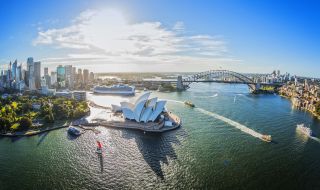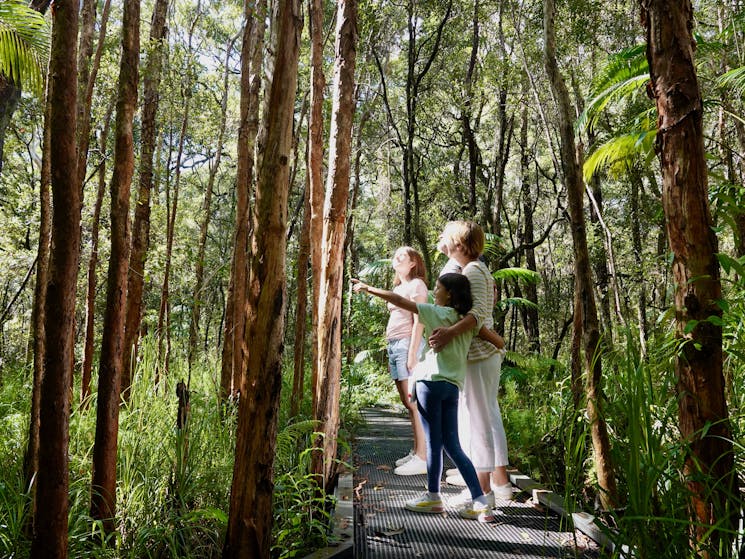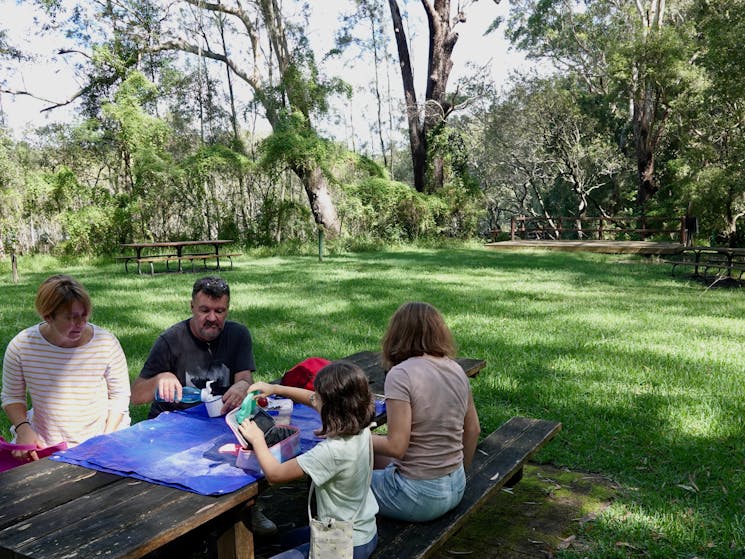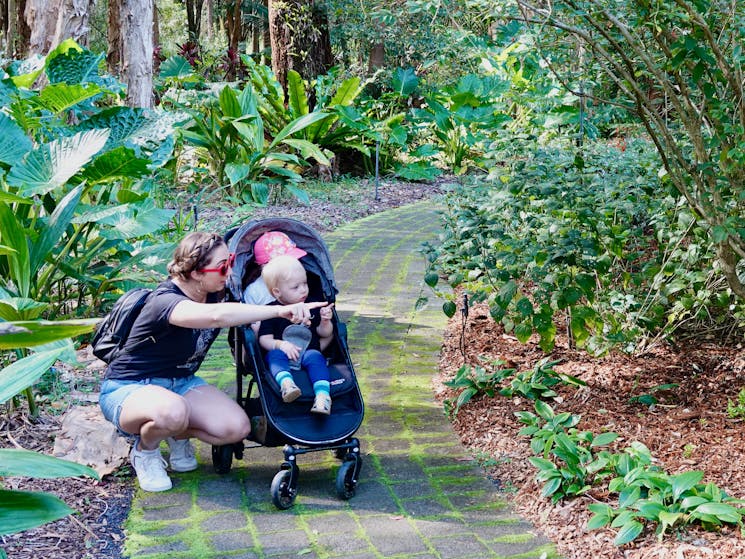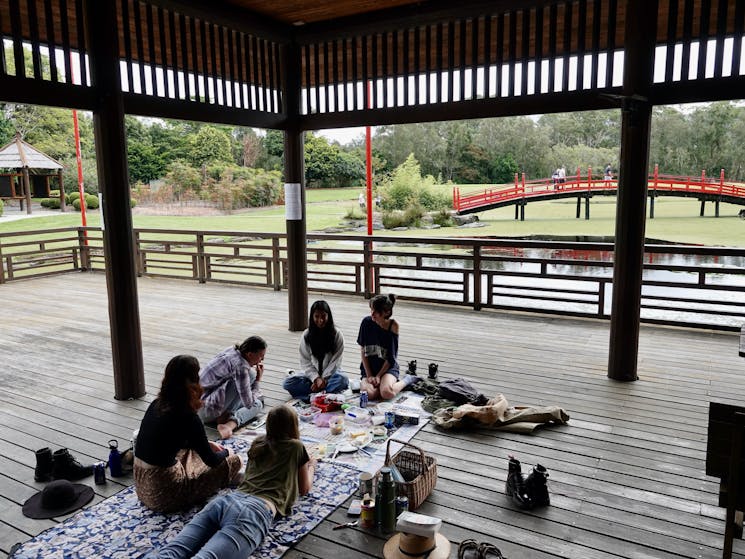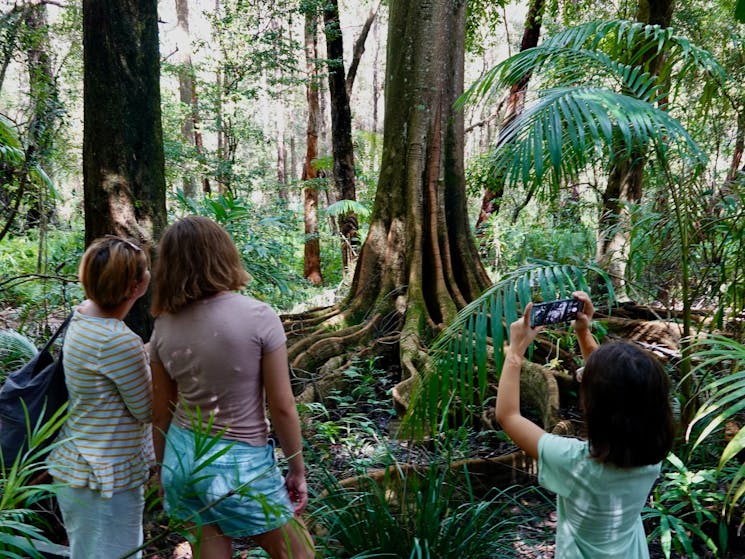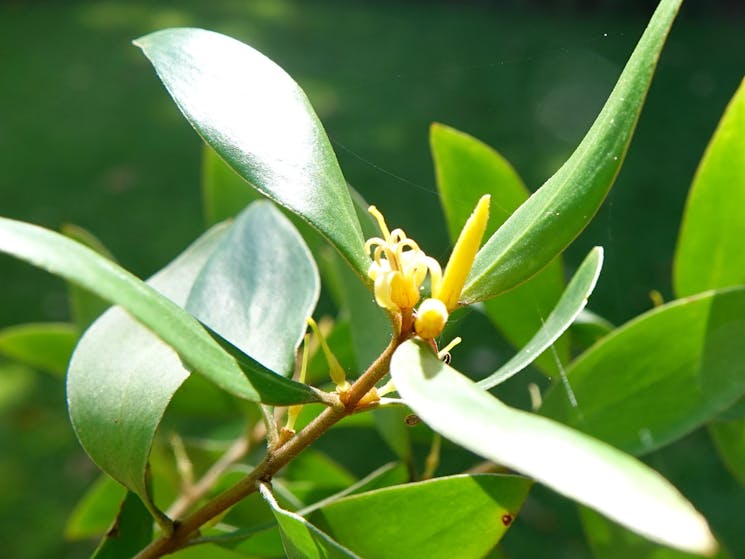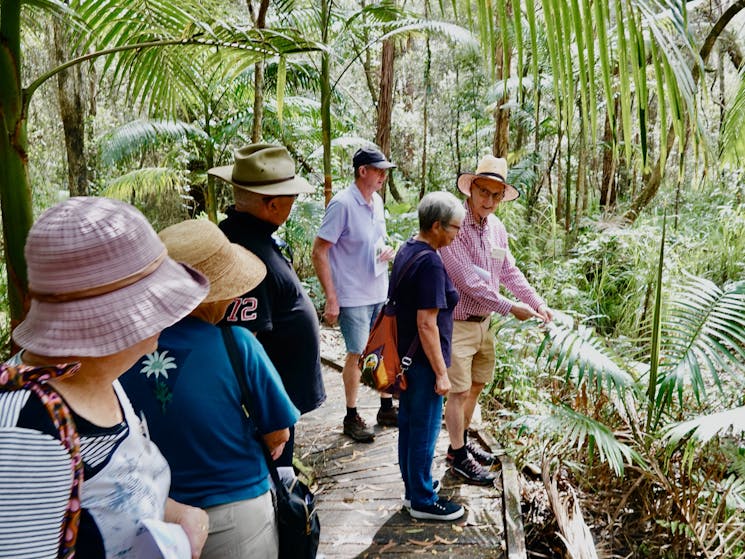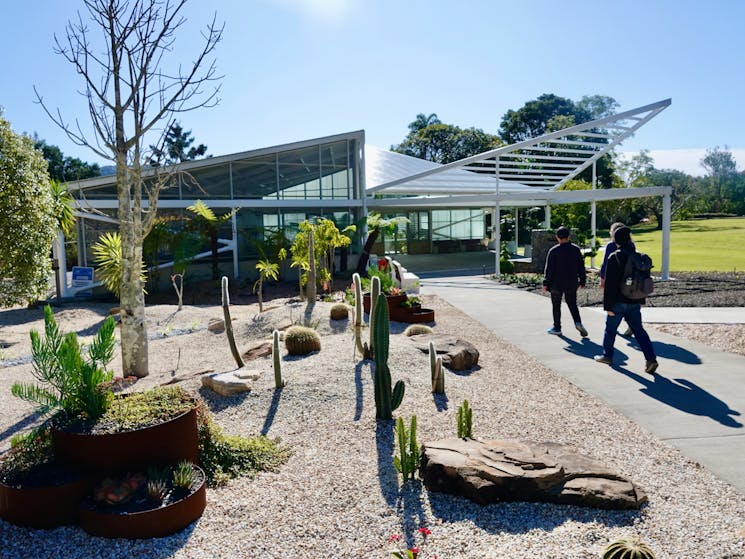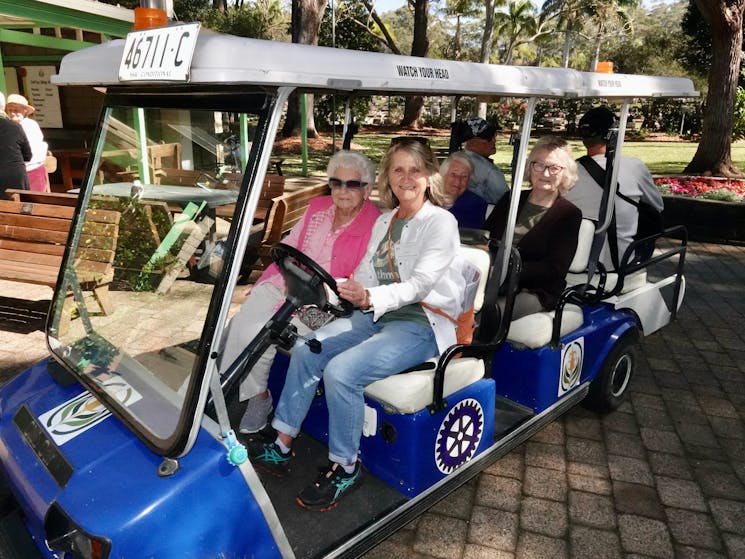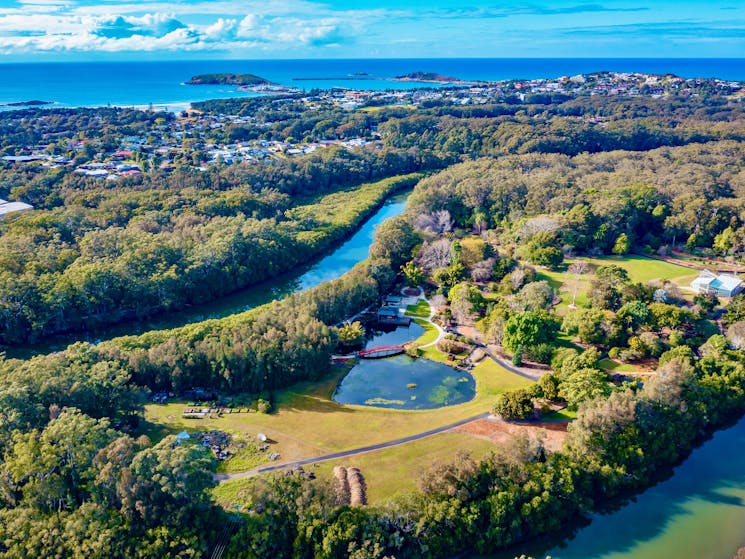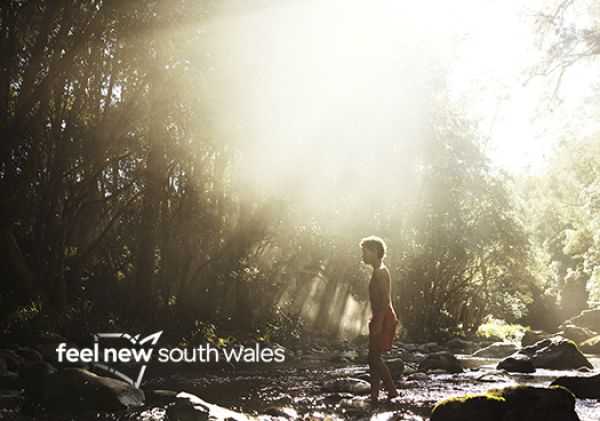Botanic Garden Coffs Harbour (North Coast Regional Botanic Garden)
Overview
An eco-accredited green oasis at the heart of Coffs Harbour - blending a unique mix of natural coastal forests, rainforests, rare native plants, international gardens, mangrove forests, glasshouse plants and beautiful flowers everywhere! Flat wide paths for easy wheelchair and stroller access.
Lots to do for all ages:
Stroll and picnic in natural forest areas and planted gardens
Take a discovery walk to explore Indigenous plant use and more
Relax by the lake and at shady rest seats throughout the garden
Visitor Information Centre and Shop at the entrance with a range of local craftwork, gifts and plants for sale.
Inside the garden entrance are dining tables by a lawn, small ponds and pavilion/stage. The easy access garden areas near the entrance offer a window to the variety of plants that can be seen on longer walks around the garden.
To assist with mobility, wheelchairs (free hire) and an electric buggy with a volunteer driver (small fee) can be booked ahead at the Information Centre and Shop.
Covering 20 hectares, the garden is enveloped by the wide waterway of Coffs Creek at the end of Hardacre Street off Harbour Drive, just one kilometre from the city centre, a subtropical haven and an extension of Coffs Creek Walk.
Accessibility
Caters for people who are blind or have vision loss
Caters for people who are deaf or have hearing loss
Caters for people who use a wheelchair.
Caters for people with high support needs who travel with a support person
Caters for people with sufficient mobility to climb a few steps but who would benefit from fixtures to aid balance. (This includes people using walking frames and mobility aids)
